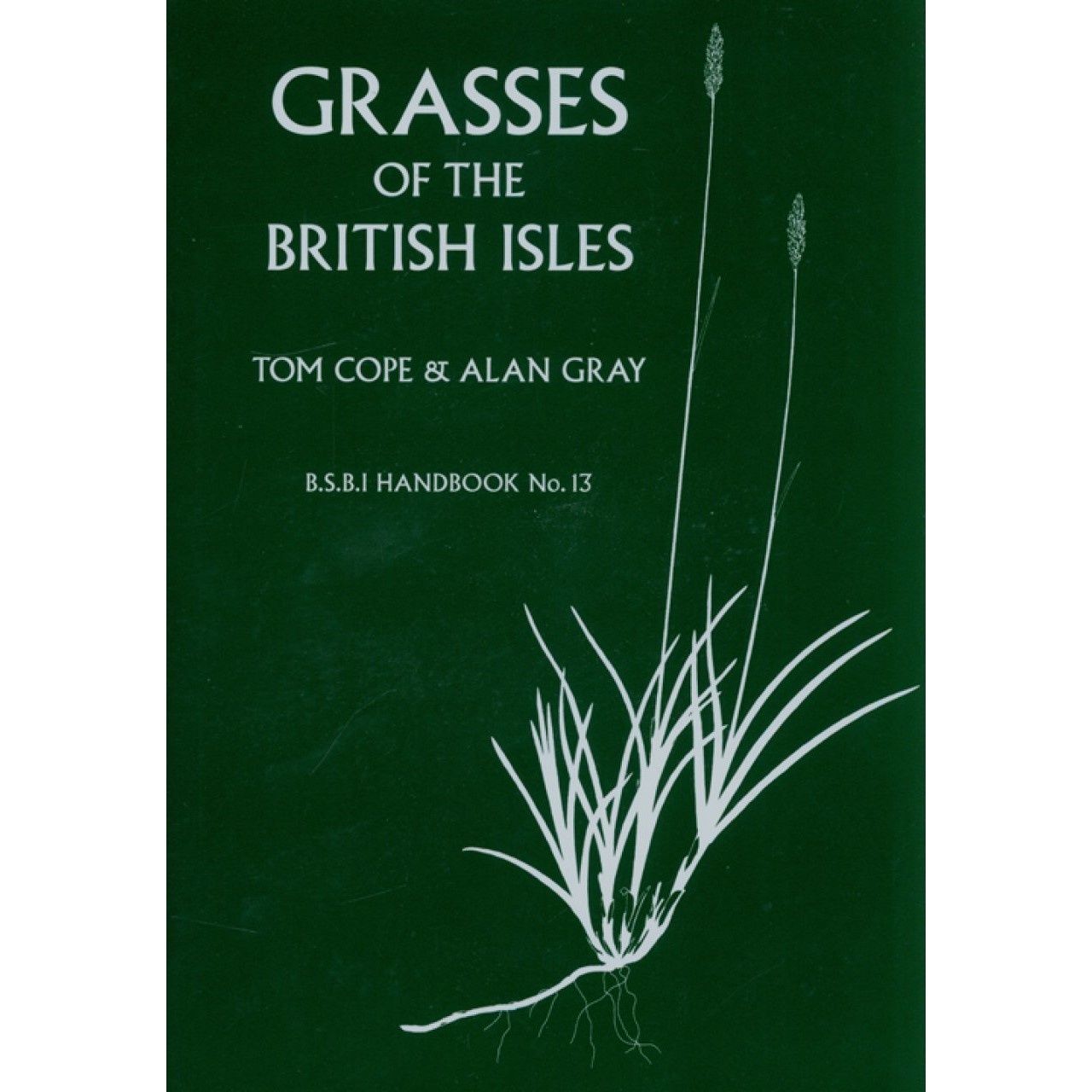| Serie | BSBI Handbooks |
| Auteurs | Tom Cope & Alan Gray |
| Taal | Engels |
| ISBN | 9780901158420 |
| Uitgever | Botanical Society of Britain & Ireland |
| Pagina's | 612 |
| Bindwijze | Paperback |
| Afbeeldingen | Lijntekeningen & verspreidingskaarten |
| Jaar van uitgave | 2009 |
It is now over 50 years since the grasses of the British Isles were last treated to a book of their own, Hubbard's famous account of 1954, though two more editions were published in 1968 and 1984, with fairly limited changes. Enough has happened to the taxonomy of the family to justify a new BSBI Handbook. Hubbard's original account, still available after more than half a century, has been overtaken by events in an ever-developing taxonomic world and will not be revised again.
This new Handbook therefore attempts to bridge the gap between the taxonomy of the 1980s and the new molecular phytogenies that are currently being explored, so that what is being offered is something that users will feel comfortable with (by departing no more than absolutely necessary from familiar taxonomy), but which hints at changes that may be afoot in the near future.
The species descriptions have been kept as brief as possible and are supported by keys to, and detailed descriptions of, tribes and genera, a move that has allowed expansion of other sections of the text. Unlike Hubbard the keys are arranged in two layers - by tribes and then by genus - allowing the user to check the specimen against a tribal description before moving on to genus, and against a generic description before moving on to species.
The book contains descriptions of 15 tribes, 67 genera and 220 species. The latter comprise 113 natives, 10 archaeophytes, 50 neophytes and 47 casuals; bamboos, which require specialists of their own, are not included. The information on each is dealt with in the following paragraphs: formal description, local distribution and habitat, biology and ecology, status and wider distribution, and additional information. New plates have been prepared for every species but, after much thought and in order not to put too much strain on the binding, distribution maps have been omitted; references to maps in the New Atlas are given for every species. Synonyms are given only in the index except where there is a rare name change to something unfamiliar; in these instances the more familiar name will be found in the text as well.It is now over 50 years since the grasses of the British Isles were last treated to a book of their own, Hubbard's famous account of 1954, though two more editions were published in 1968 and 1984, with fairly limited changes. Enough has happened to the taxonomy of the family to justify a new BSBI Handbook. Hubbard's original account, still available after more than half a century, has been overtaken by events in an ever-developing taxonomic world and will not be revised again.
This new Handbook therefore attempts to bridge the gap between the taxonomy of the 1980s and the new molecular phytogenies that are currently being explored, so that what is being offered is something that users will feel comfortable with (by departing no more than absolutely necessary from familiar taxonomy), but which hints at changes that may be afoot in the near future.
The species descriptions have been kept as brief as possible and are supported by keys to, and detailed descriptions of, tribes and genera, a move that has allowed expansion of other sections of the text. Unlike Hubbard the keys are arranged in two layers - by tribes and then by genus - allowing the user to check the specimen against a tribal description before moving on to genus, and against a generic description before moving on to species.
The book contains descriptions of 15 tribes, 67 genera and 220 species. The latter comprise 113 natives, 10 archaeophytes, 50 neophytes and 47 casuals; bamboos, which require specialists of their own, are not included. The information on each is dealt with in the following paragraphs: formal description, local distribution and habitat, biology and ecology, status and wider distribution, and additional information. New plates have been prepared for every species but, after much thought and in order not to put too much strain on the binding, distribution maps have been omitted; references to maps in the New Atlas are given for every species. Synonyms are given only in the index except where there is a rare name change to something unfamiliar; in these instances the more familiar name will be found in the text as well.
























